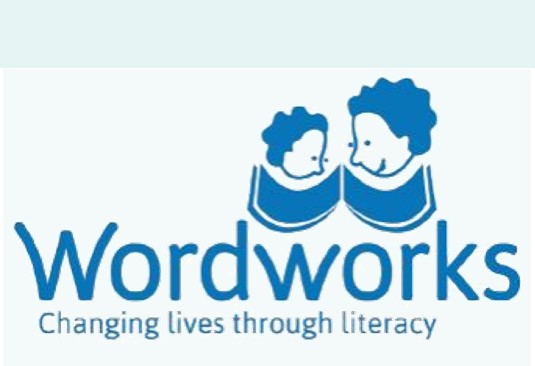Welcome to our Lockdown Early Literacy Page!
We will be sharing tips for developing the early literacy of the children in your care, in a fun and easy way. This page will be updated regularly, so please check in often.
Please share, comments, pictures and videos of your engagements with these activities to [email protected], or share them on Facebook and Instagram and tag Wordworks.
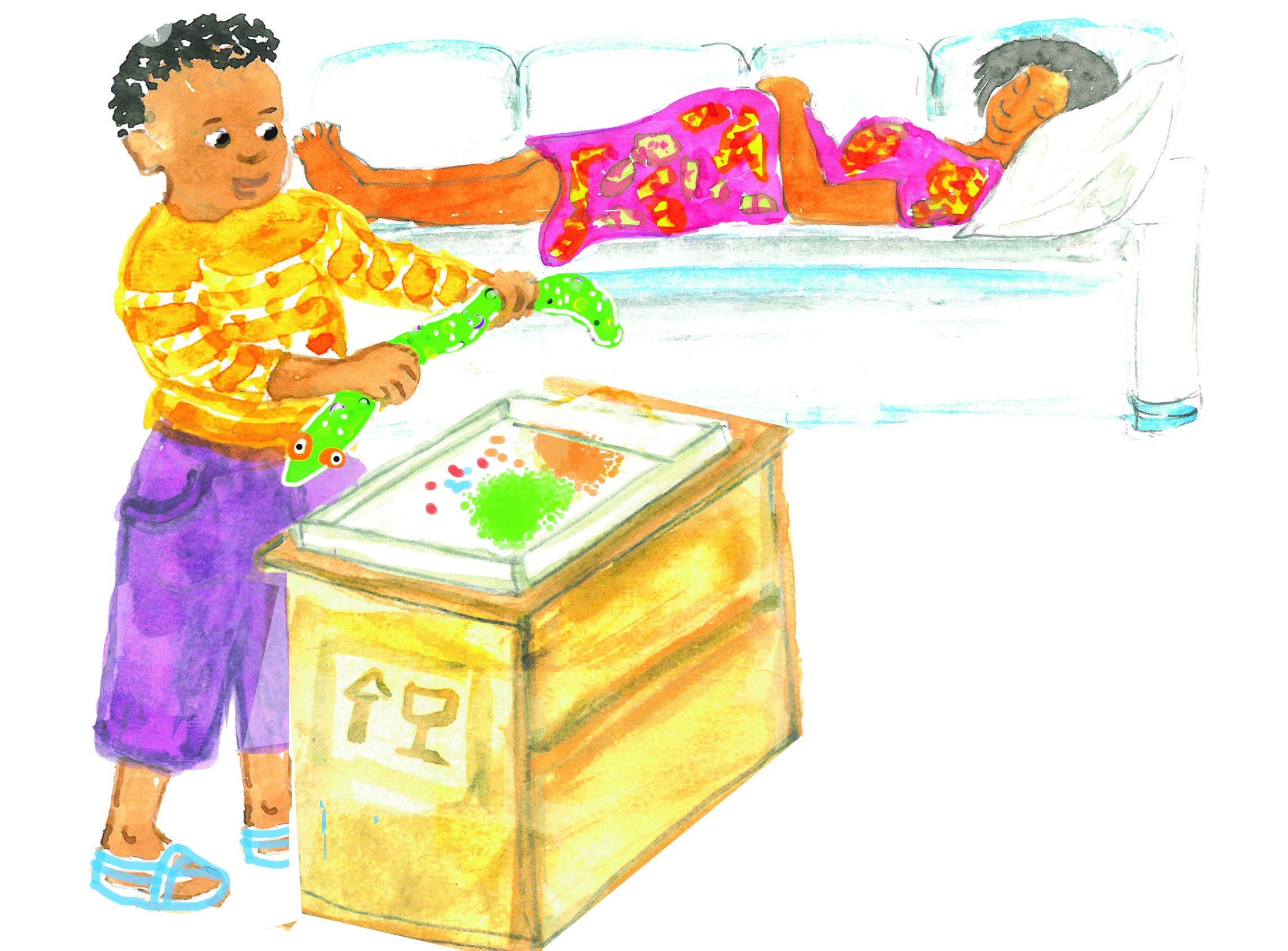
Making playdough together is a great home activity
Looking for a quiet and calming activity when children are feeling restless or frustrated? Try this. (RECIPE BELOW). You have the opportunity to build your child’s language without them realising that they are learning.
There are lovely measurement words like ‘cup’, ‘tablespoon’ and ‘dessert spoon’. Words like ‘mix’, ‘add’, ‘stir’, ‘store’, ‘dry’ and ‘sticky’ can be added to your child’s vocabulary.
Older children can predict what colours they can make if they mix certain colours together.
You could also get them to solve problems like, “What ingredient can we add if the mixture is too dry, or too sticky?”
Squashing and shaping playdough strengthens little hand and finger muscles. This helps their hands feel less tired when they draw or write.
Here is a simple recipe:
2 cups flour; I cup salt; 2 cups water; 2 dessert spoons oil; 4 tablespoons cream of tartar; food colouring
Mix all the ingredients and cook until the dough comes away from the sides of the pot. Store dough in an airtight container once it has cooled.
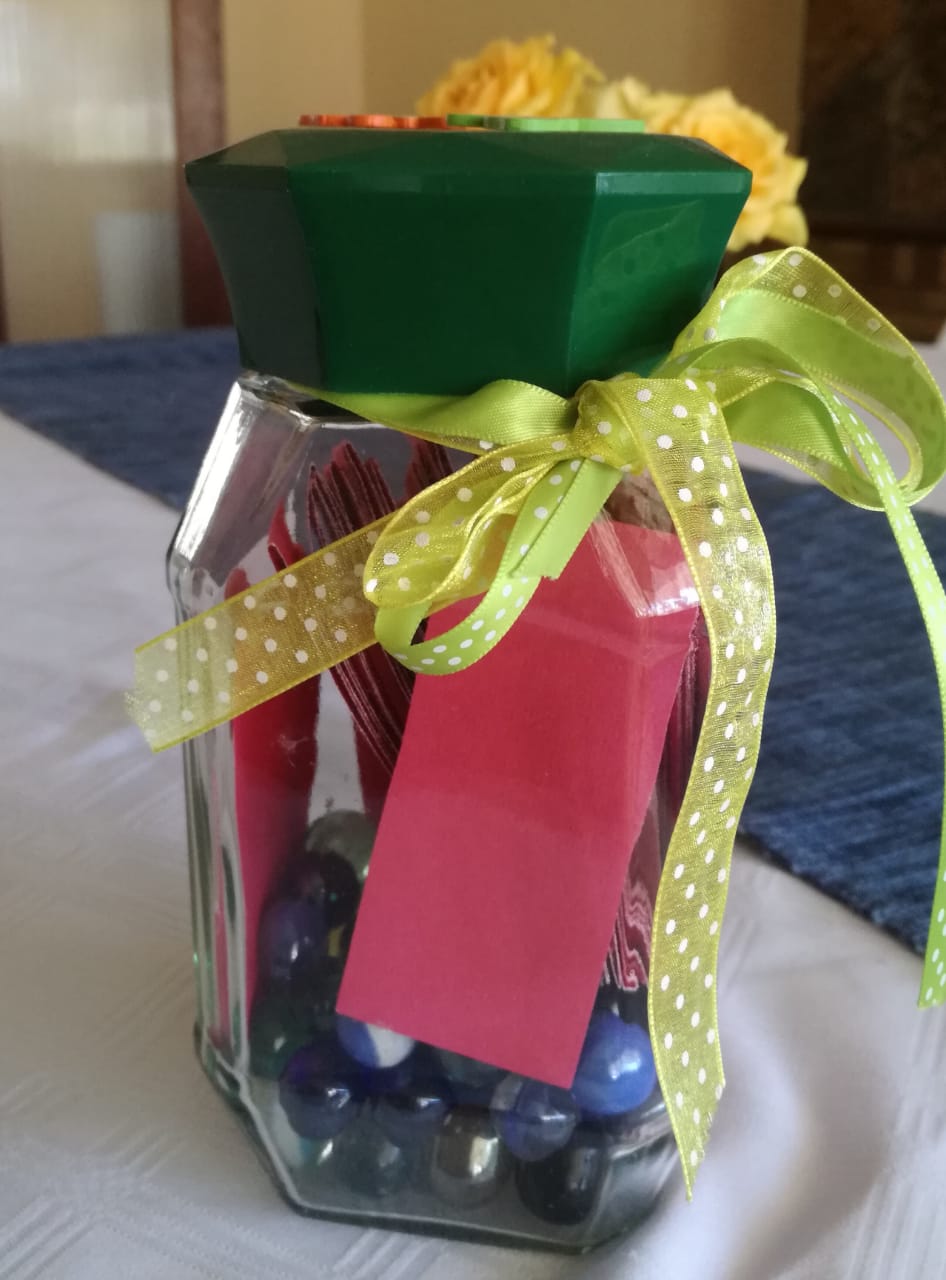
Write letters or draw pictures for family members
Encourage your child to draw a picture or to write a letter to each member of the family. Do this over a few days and make sure no one is left out! You could get all the members of the family to do the same.
Use an empty jar or tin to make a simple postbox. You could even help your child decorate it. Remind everyone to post their pictures or letters.
When you’re altogether, read your letters and share your drawings. How much fun it will be to get a personal message from each member of your family! Any opportunity to write for a real purpose shows your child that writing is fun and meaningful and that it’s not just something you have to do at school.
Praise your children’s efforts and try not to over-correct their attempts. It’s more fun when they feel successful and when it’s fun they will practise more often and be motivated to keep writing.
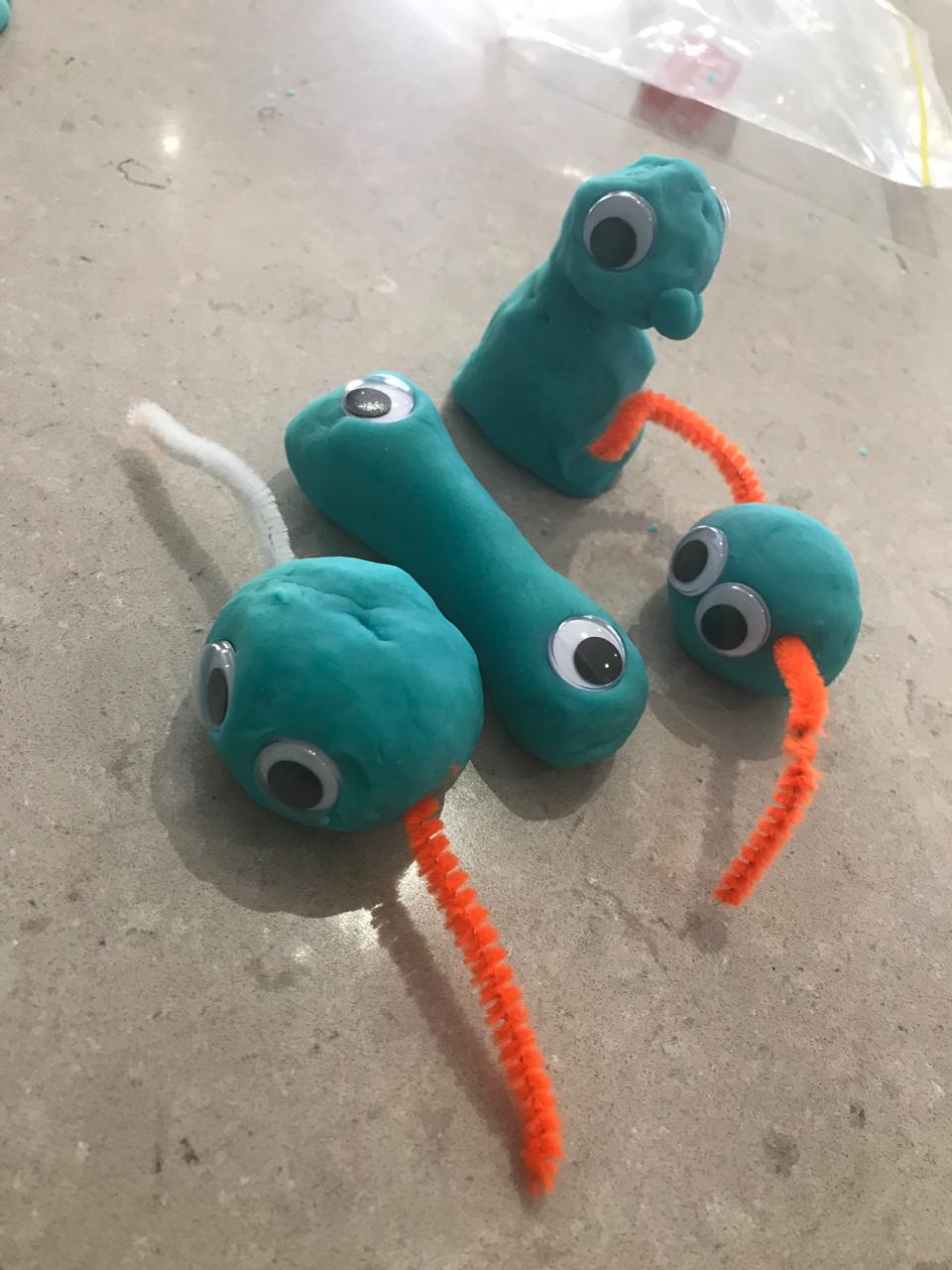
Make a playdough character with your children
You will be surprised by what they come up with!
They can add sticks, stones and bottle tops to make arms, legs and eyes and to give the character some personality!
This activity helps children think of ways to use what they have, to create an idea that’s in their head. What a great problem- solving skill!
Help your child make up a fun story about their character: What is its name? Where does it live? What does it like to do ? Think of something funny or interesting that happened to it one day ? What happened next? How did the story end?
Let your child draw a picture and write the story they just told or… you can write the story for them as they tell it.
Remember it’s more important for children to have a go at writing and to get their ideas on paper instead of getting the spelling right!
Look at these fun playdough characters in the picture. What wonderful stories they could make!
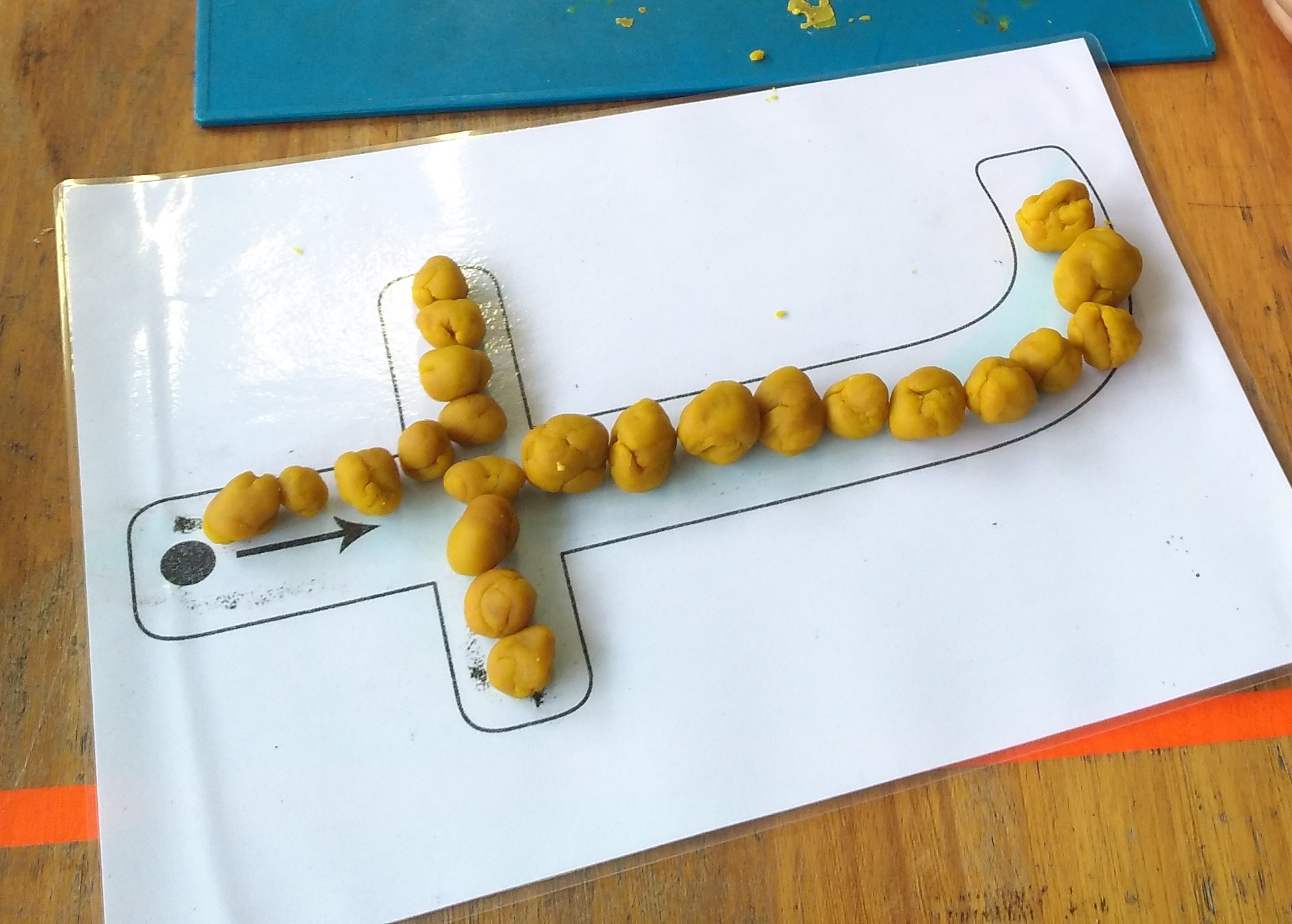
Help your little ones practise their letters in a fun way!
The more children practise their letters in fun ways and not in their school books, the faster and more automatically they will write when it’s time to go back to school.
They could make letters out of playdough;
use their fingers or sticks to write letters in the sand (you could even make a mini- sand tray and do this indoors);
Use water and a paintbrush to paint letters on concrete surfaces like walls or floors;
Or they can write big letters with chalk on those surfaces.
